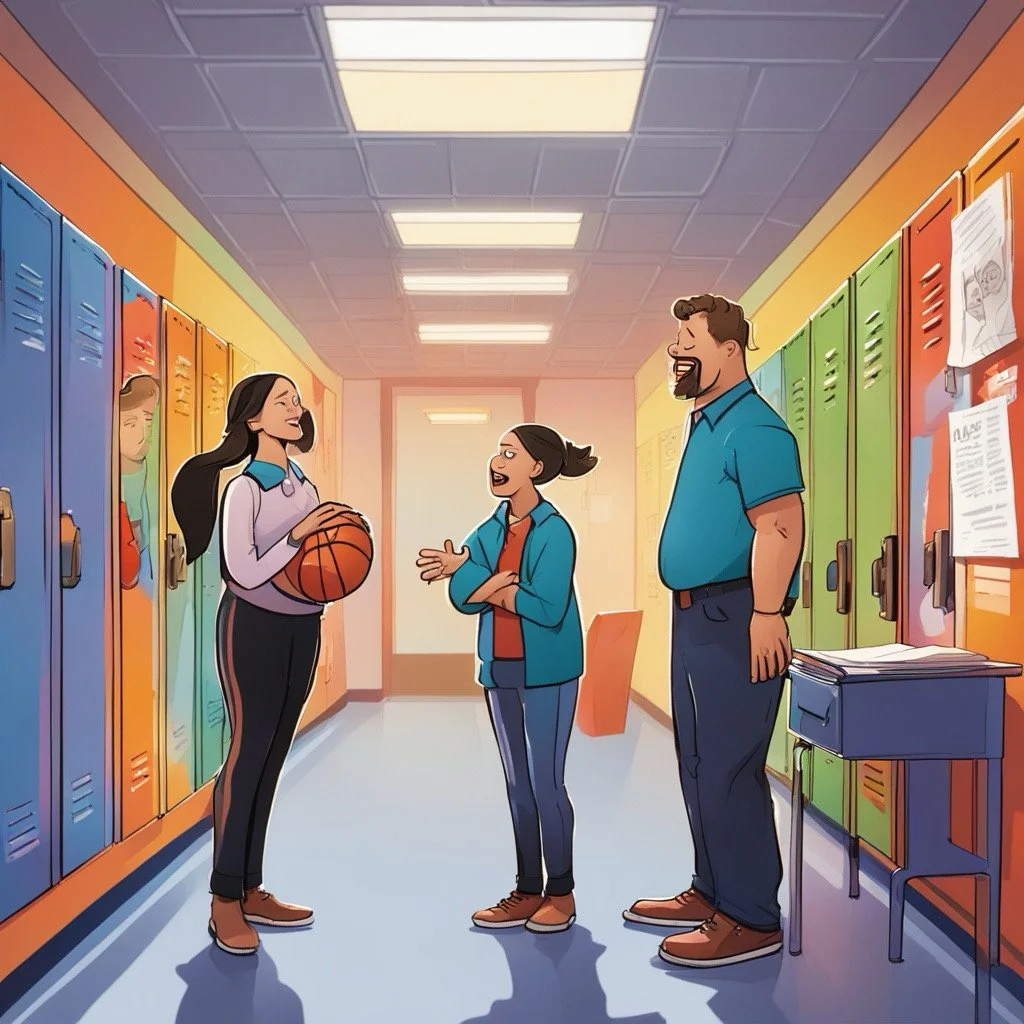Leveling the Playing Field: Accommodations in Athletics and Activities (for 504s and IEPs)
As administrators, we're all familiar with Section 504 of the Rehabilitation Act of 1973, and many of us also work closely with Individualized Education Programs (IEPs) under IDEA. We know these frameworks ensure that students with disabilities have access to a free and appropriate public education. But what happens when that education extends beyond the classroom – to the basketball court, the debate club, or the robotics lab?
This is where the conversation can sometimes get a little tricky, especially when we're talking with our dedicated athletic coaches and activities sponsors. For many of them, their primary focus is on performance, teamwork, and competition, and the nuances of special education law might not be top of mind. Yet, our students covered under Section 504 and those with IEPs participate in these vital extracurriculars every single day. While IDEA primarily focuses on instructional services, the accommodations listed within an IEP are fundamentally about access, falling under the principles of the Americans with Disabilities Act (ADA) and Section 504. This means their accommodations apply just as much in these settings as they do in English class.
So, how do we bridge that gap? How do we ensure our coaches and sponsors are not only aware of these crucial accommodations but also feel empowered to support their students effectively?
Why This Conversation Matters
This conversation is incredibly important for several key reasons. First and foremost, it's about legal compliance; our schools are legally obligated to provide accommodations for students with disabilities, whether under a 504 plan or an IEP, in all school-sponsored programs and activities. Beyond that, it's crucial for student success. For students with disabilities, participation in sports and activities can be transformative, building confidence, fostering social skills, and providing a vital sense of belonging. Without proper accommodations, they may be excluded or unable to fully participate. Ultimately, providing accommodations is about fair play, ensuring that a student's disability doesn't prevent them from demonstrating their abilities and having an equal opportunity to thrive.
Tips for Talking with Coaches and Sponsors
Having these conversations can feel daunting, especially when you're speaking with individuals who aren't primarily educators. Here are some tips for administrators to make these discussions productive and collaborative:
Start Early and Often: Don't wait until there's a problem. Integrate discussions about 504 plans and IEP accommodations into pre-season meetings, staff development, and regular check-ins.
Frame it as Student Support, Not Legal Burden: Emphasize that providing accommodations is about supporting all students and helping them reach their full potential, not just about avoiding legal issues.
Keep it Concrete and Practical: Avoid jargon. Instead of quoting legal statutes, provide specific examples of how accommodations might look in their particular activity.
Instead of: "We need to ensure compliance with ADA and Section 504 in all non-academic settings for both 504 and IEP students."
Try: "Think about a student with ADHD who might need a short break during a long practice, or a student with an anxiety disorder who benefits from knowing the schedule in advance. These apply whether it's on a 504 plan or an IEP."
Focus on "What Works": Encourage coaches and sponsors to think about creative solutions. For example, if a student needs extended time on a written assignment for debate club, how can that be managed without disrupting the flow of the activity?
Provide Specific Student Information (with proper consent): When you're discussing a specific student, ensure you have the necessary consent to share their 504 plan or IEP accommodation details. Focus on the functional impact of their disability and the specific accommodations they require for access.
Offer Training and Resources: Don't just tell them; show them. Provide accessible resources, offer to conduct brief training sessions, or connect them with a special education professional who can answer their questions.
Emphasize Collaboration: Make it clear that this is a team effort. You're there to support them, and together, you can ensure all students have a positive and successful experience.
Highlight the Positive Impact: Share success stories! When a student thrives in an activity because their accommodations were properly implemented, celebrate that and use it as a learning opportunity for others.
Be Available for Questions: Let them know your door is open. Encourage them to ask questions and seek clarification whenever they are unsure.
Our athletic coaches and activities sponsors are incredibly dedicated individuals who pour their hearts into supporting our students. By approaching these conversations with clarity, empathy, and a focus on student success, we can empower them to be even better advocates for all the young people under their guidance, ensuring that every student truly has the chance to play, participate, and shine.

